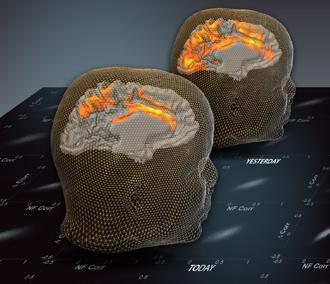Israeli research shows that scans reveal past brain activity
Tal Harmelech, under the guidance of Malach and Dr. Son Preminger, set out to uncover their significance. The idea was that the patterns of resting brain waves may constitute “archives” for earlier experiences.
As we add new experiences, the activation of our brain’s networks lead to long-term changes in the links between brain cells, a facility referred to as plasticity. As our experiences become embedded in these connections, they create “expectations” that come into play before we perform any type of mental task, enabling us to anticipate the result.
The researchers hypothesized that information about earlier experiences would be incorporated into the links between networks of nerve cells in the cortex, and these would show up in the brain’s spontaneously emerging wave patterns. The researchers had volunteers undertake a training exercise that would strongly activate a well-defined network of nerve cells in the frontal lobes. While undergoing scans of their brain activity in the Institute’s functional magnetic resonance imaging (fMRI) scanner, the subjects were asked to imagine a situation in which they had to make rapid decisions.
The volunteers received auditory feedback in real time, based on the information obtained directly from their frontal lobe, which indicated the level of neuronal activity in the trained network. This “neurofeedback” strategy proved highly successful in activating the frontal network – a part of the brain that is notoriously difficult to activate under controlled conditions, the researchers said.
The findings were published in the Journal of Neuroscience.
Viva Sarah Press

